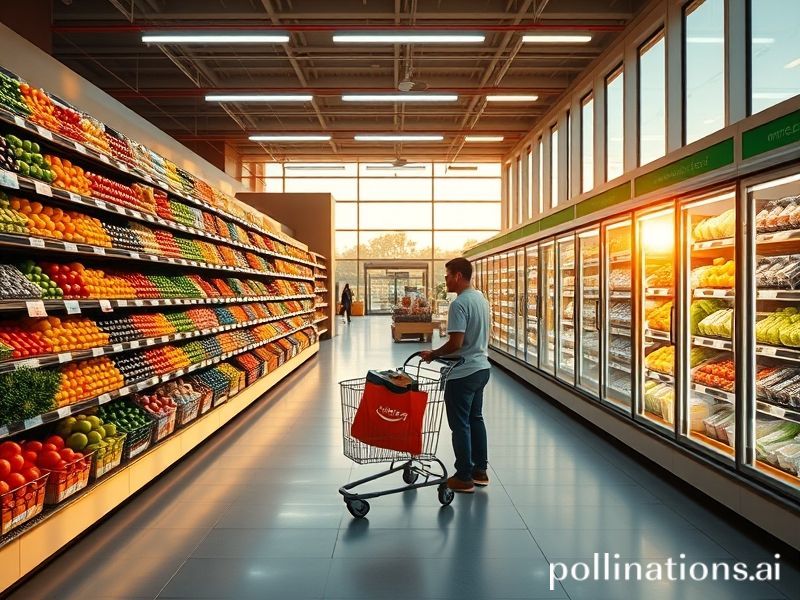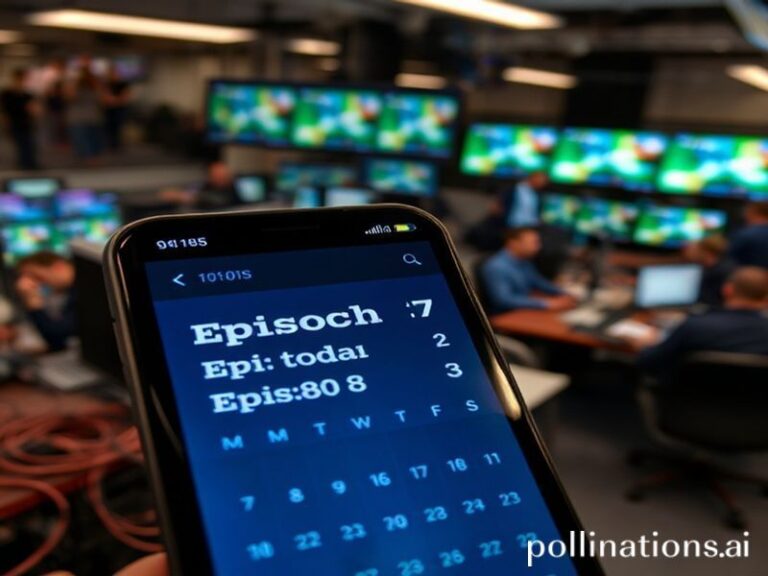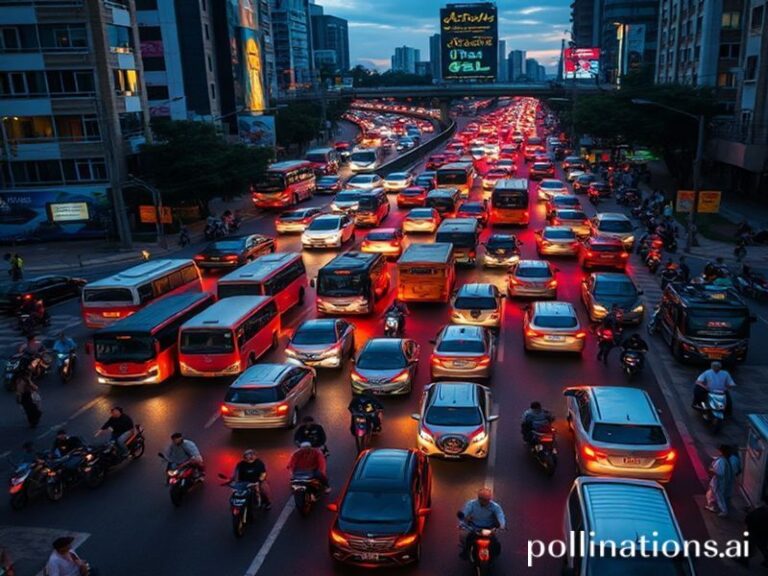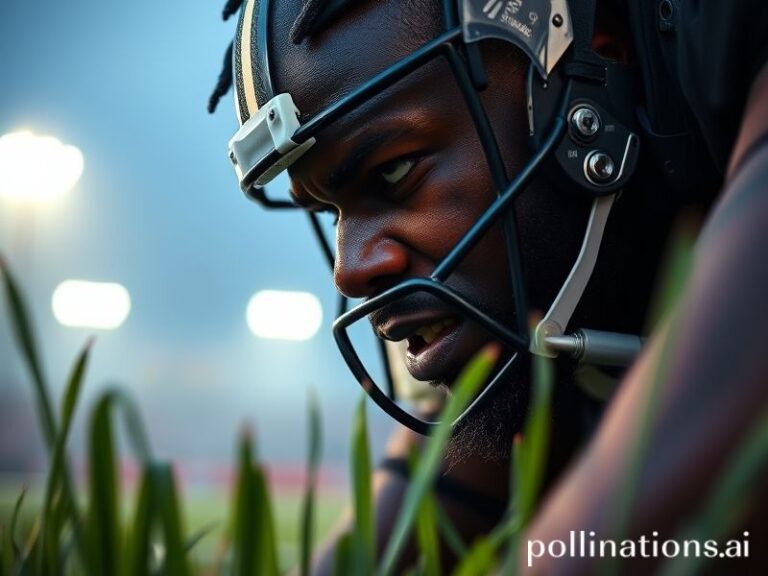amazon fresh
Amazon Fresh: The Banana Republic of Groceries Goes Global
By Our Correspondent, still wearing yesterday’s shirt in an undisclosed airport lounge
Somewhere over the Pacific, between the recycled air and the lukewarm chardonnay, it occurred to me that Amazon Fresh has become the world’s most polite form of colonialism. One click and a pineapple arrives in Reykjavík still shivering from Ecuadorian sunshine, wrapped in more plastic than a tax-haven shell company. The customer smiles; the planet whimpers; Jeff Bezos takes another suborbital victory lap.
From São Paulo to Singapore, the lime-green vans now glide through traffic like diplomatic limousines, immune to the petty laws of parking tickets or carbon budgets. They carry the promise of “friction-free” shopping, which is corporate speak for “we erased the awkward human encounter at the checkout and replaced it with an algorithm that knows you’re pregnant before your mother does.” In India, Fresh’s expansion was heralded as a boon for farmers—right up until the farmers discovered their margins had been shrink-wrapped to the size of a chickpea. Meanwhile, in Germany, unions are demanding hazard pay for warehouse workers whose eight-hour shifts involve jogging the length of Liechtenstein inside fulfillment centers the size of Zeppelins.
The genius of Amazon Fresh is not speed; it’s the illusion of neutrality. The app greets you in 37 languages, adjusts prices to match local despair, and still manages to make every country feel like a suburb of Seattle. A mother in Lagos taps “organic baby kale” and receives leaves that began life in Dutch hydroponic trays, flew business class via Dubai, and landed with a carbon footprint larger than Lagos itself. She posts a smiling unboxing video anyway—because if the kale doesn’t arrive, what fresh hope is left?
Governments watch the green vans with the same wary respect once reserved for gunboats. France slapped on a digital services tax; Amazon responded by rerouting profits through Luxembourg, a country whose entire GDP could be direct-deposited into one Fresh delivery bag. Mexico City regulators tried to cap single-use plastics; Amazon introduced “eco-pouches” made from 12% recycled dreams and 88% marketing. Tokyo bureaucrats drew up antitrust diagrams that looked like sad origami cranes, then quietly folded when Fresh promised same-hour delivery of Hokkaido scallops to every tatami mat in the prefecture.
The broader significance? We are witnessing the final privatization of appetite. Once, nations fought wars over spice routes; now we hand our card details to a voice assistant named Alexa who sounds vaguely contrite when the avocados arrive bruised. Supply chains have replaced supply and demand; loyalty programs have replaced loyalty. The old imperial flags were at least honest enough to flutter in the wind—you could see what you were surrendering to. Today the flag is an app icon, and it fits neatly in the same pocket as your last shred of privacy.
Of course, there are winners. Small farmers in Kenya who learn to barcode their mangoes can suddenly sell to Stockholm hipsters willing to pay artisanal prices for the story. But the price of entry is uploading their soil data to a cloud server in Virginia, where an intern named Brad decides whether their farm is “on brand.” Meanwhile, the global south gets fresher produce than ever before, delivered to doorsteps where tap water still arrives by bucket. Irony, like the strawberries, is best served chilled.
So here we are, citizens of the Banana Republic of Groceries, applauding our own siege. We cheer when the drone drops quinoa on the balcony, then wonder why the neighborhood bazaar smells of mothballs and nostalgia. The planet warms, the vans multiply, and somewhere an algorithm quietly files “regret” under a miscellaneous expense line.
And yet tomorrow we will open the app again—because hunger, unlike history, can be scheduled for next-day delivery.







